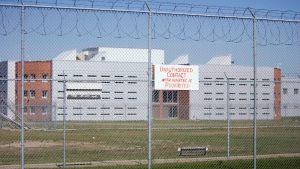The Supreme Court of Canada has reserved its decision in the case of a Saskatchewan jail policy that has been under scrutiny.
The policy in question is the use of segregation in provincial jails, which has been challenged by the Canadian Civil Liberties Association (CCLA). The CCLA argues that the use of segregation, also known as solitary confinement, violates the Charter of Rights and Freedoms.
The case was brought to the Supreme Court after the Saskatchewan Court of Appeal ruled in favor of the CCLA, stating that the use of segregation for more than 15 days is unconstitutional.
During the hearing, the CCLA argued that the use of segregation can have severe and lasting effects on an individual’s mental health, and that alternatives should be considered.
On the other hand, the Saskatchewan government argued that segregation is necessary for the safety and security of both inmates and staff, and that alternatives are not always feasible.
The Supreme Court justices heard arguments from both sides and asked questions to better understand the issue at hand. They also heard from interveners, including the Canadian Bar Association and the John Howard Society, who provided their perspectives on the matter.
After two days of hearings, the Supreme Court reserved its decision, meaning that a ruling will be made at a later date. It is not uncommon for the Supreme Court to reserve its decision, as it allows the justices time to carefully consider all the arguments and evidence presented.
The decision of the Supreme Court will have significant implications for the use of segregation in provincial jails not only in Saskatchewan but across the country. It will also have an impact on the rights and well-being of inmates.
The CCLA has stated that they are hopeful for a positive outcome and that the use of segregation will be limited to exceptional circumstances. The Saskatchewan government has not yet commented on the case.
We will continue to monitor this case and provide updates as the Supreme Court’s decision is made.



